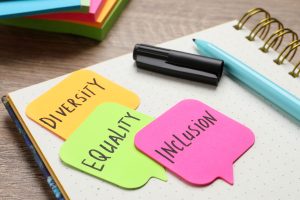Based on a real life event and told from the perspective of someone navigating the world with a disability
Invisible in the system: the silent barriers people with disability face.
I’m not asking for special treatment. I’m asking for equal access.
There’s something quietly terrifying about realising you can’t fix a situation that affects your security. Not because you don’t know what to do, but because the systems meant to help won’t let you.
Last week, I lost my phone. That might sound minor, but for me, it wasn’t just inconvenient — it was dangerous. My phone is my lifeline. It holds my banking access, my two-factor authentication apps, and passwords I now can’t retrieve. I needed to contact my telephone communication provider urgently to secure my account and get a new number. I needed to update my bank details. I needed help.
But when I called, well actually when we called, the person on the other end refused to speak with me. Not because I wasn’t the account holder. I am. But because I couldn’t speak directly with them. I communicate with the world through a trusted support person, a third party who helps me get things done when the systems aren’t built for people like me.
And that, apparently, is a problem.
Despite providing identification. Despite verifying every security detail. Despite being present and clearly consenting to my support person speaking on my behalf — I was told no. Policy requires the account holder to speak directly. And no, there was no alternative.
What happens in that moment is hard to describe. Frustration doesn’t cover it. It’s a cocktail of fear, helplessness and humiliation. I felt invisible, like I didn’t exist as a full person in their system. Just because I couldn’t communicate in a way they understood or were willing to accommodate.
I understand the importance of security. But security without flexibility is exclusion. It’s a silent barrier that tells me: You don’t belong here unless you can do it our way.
Policies like this don’t just inconvenience people with disabilities, they isolate us. They risk our safety, our finances, our independence. And they put an enormous burden on our supporters, who are only trying to help in the ways we’ve asked them to.

I’m not asking for special treatment. I’m asking for equal access. For the ability to protect myself and manage my life like anyone else. For systems that don’t see disability as an inconvenience or a risk but as a reality that good policy can and should accommodate.
The real risk isn’t in letting a verified, consenting third party assist someone like me. The real risk is in silencing the very people policies are meant to protect.
So, I ask: next time you’re building a policy, or answering a call, or training your team, please ask yourself, “Are we including everyone?” Because right now, it doesn’t feel like you are.
This story is drawn from a real event and retold through the eyes of someone with disability. It is shared not to place blame, but to help others feel the frustration, fear, and isolation that arise when systems are not inclusive, and to remind us all that a little understanding can change everything.

